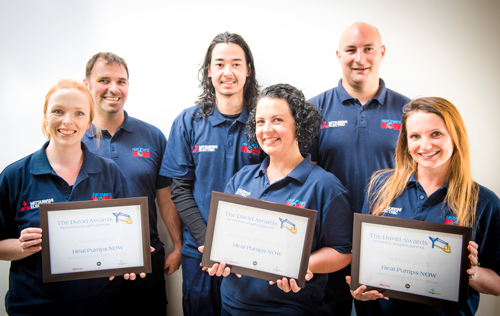5 ways to use social media to your SEO advantage
Robert Kramers outlines the platforms and methods your business can use to your SEO advantage, in order to boost traffic, sales and lead generation.
1K
Robert Kramers outlines the platforms and methods your business can use to your SEO advantage, in order to boost traffic, sales and lead generation.
When it comes to your business’s ability to harness the full potential of online channels, it’s no longer a case of SEO (search engine optimisation) or social media. In fact, if your business is looking to achieve maximum success online your SEO and social media strategies need to work hand-in-hand.
Why is this? Well, it’s becoming increasingly clear that social media is having a growing impact on SEO. And while the exact ways in which it does this are still largely unknown, what is clear is that search engines like Google are placing a far greater importance on social signals it receives from your business’s social media accounts.
These signals aren’t just limited to a Facebook account, Twitter profile or LinkedIn account, either. In fact, there are multiple platforms, and methods, that your business can use to your SEO advantage. In turn benefitting from the boost in traffic, sales and lead generation that comes with it.
Here are our five ways to do just this.
1. Harness the power of viral content.
‘Content is king’ is the marketer’s go-to catchphrase for a reason: it’s true. And this won’t be changing any time soon. The question for your business, then, is what kind of content should you be creating? And how do you get this shared?
While there’s no way to force users to hit that ‘Share’ button, there are similar elements at the heart of all highly-shared content that you can include to give your content the best chance of catching like a disease and spreading like wildfire across social media.
Chief among these is practical, lengthy content. Provide readers with something of practical value. They’ll be more likely to share it based on the value they got out of it. Following on from this, ensuring your content is memorable (whether you do this by evoking an emotional response, relaying a story, or going all-out on images and visual presentation) is a great way to get your content shared. If someone remembers you when they turn to their social media accounts, you can be sure they’ll be talking about you.
2. Claim your profile on these social networks.
You can’t expect to harness the full potential of social media without being an active participant. From the aged stalwarts to the new kids on the social media block, the following list should be your go-to for sharing your content as well as interacting with your audience and fellow industry experts alike.
While it’s true that not all businesses benefit the same way from all social media platforms, ensuring you have a presence will certainly help you get your messages and content around.
• Twitter – 140 characters may seem limited, but it’s all the characters you need to easily engage with your community, customers and other experts within your industry.
• Facebook – Facebook’s popularity may have waned, but when you’re talking numbers like these? Its gargantuan reach is now only mostly-gargantuan, and still vitally important!
• LinkedIn – The overuse of ‘I'd like to add you to my professional network on Linkedin’ may have become a joke in recent years, but LinkedIn remains a powerful social networking tool for building your personal brand and increasing your standing as a thought leader within your industry.
• Slideshare – We know what you’re thinking: a Powerpoint sharing site? But bear with us! Slideshare’s popularity is on the rise, with a wealth of industry-leading content already flooding the site by businesses who recognise its potential. Slideshare isn’t just an excellent link-building opportunity, it also gives you the chance to repurpose your content into a new format than can reach a greater audience. And if the sharing numbers are anything to go by? It can be a lucrative source of traffic for any business.
• Periscope – We all know that video is huge. User-generated video even more so. Periscope takes this a step further, allowing users to broadcast live to their followers. Whenever they want, and wherever they are. This offers a great way to interact, offer a look behind-the-scenes, or even stage Q&As with your audience!
3. Create your Google My Business listing.
Google is so proud of its business directory service My Business that is displays these listings above regular search engine results in most local searches. As you can imagine, this offers a lucrative opportunity for your business to increase its visibility among the users that count: local searchers. Creating your Google My Business profile takes a matter of minutes and it’s a quick win. So what are you waiting for?
4. Use social media to become a go-to expert.
Guest posting has long been seen as a way to effectively build your personal brand online. In turn, promoting your expertise and your business. But this isn’t the only way.
Engaging directly with users via forums, comments sections and social networks shows that you’re ready and willing to devote the time to engaging with your audience. You can do this by utilising relevant hashtags such as X and Y, engaging with established experts and mentioning them in content you share that includes them.
When doing so, aim to treat your #hashtags like keywords, as they work in much the same way – both as a way to easily find relevant conversations, and to ensure you’re being found by the people looking for what you’re talking about.
5. Encourage user reviews.
Reviews aren’t just an indicator to interested customers that you’re reliable and trustworthy. They also determine the position of your Google My Business listing. But reviews aren’t just limited to Google’s platform.
Social review sites like Yelp and Foursquare, as well as industry-specific sites like Trip Advisor for travel and Shopkick for retailers, all rely on reviews to determine quality, relevancy and listing rankings.
The more positive reviews you receive, the more visible you are. Which is yet another signal sent to search engines that your site is reliable, quality and worth showing. As an added bonus, these social media profiles, from Twitter to Yelp, all rank within Google’s search results too – meaning the more high-quality social media profiles you have, the better your chances are of having blanket coverage within search results for a given term or search phrase.
Robert Kramers is a search marketing consultant. Email [email protected] or visit www.found.co.nz



